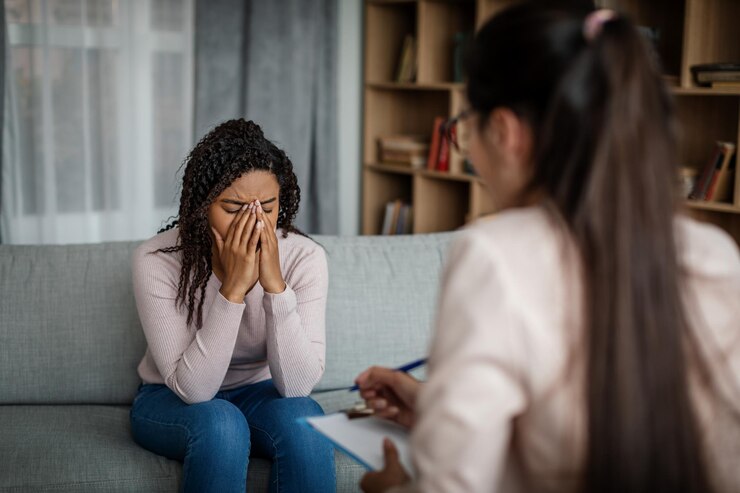Statistics show:
- One in five women and one in 26 men experience sexual assault or rape in their lifetime
- 75% of sexual assault survivors develop PTSD a month after assault
- Sexual assault survivors meet the criteria for PTSD symptoms 6-12 months after the assault
These worrying statistics only show that sexual assault has far-reaching effects than physical harm. Victims experience trauma, which can cause shame, nightmares, and other unpleasant memories.
They also question their judgment and sanity and blame themselves for what happened. These are all PTSD symptoms, and knowing how to deal with them is critical to restoring one’s mental health. We explain what PTSD is and ways to cope with this mental health condition after sexual assault.
What is Post-traumatic Disorder (PTSD)?
Post-traumatic disorder is a mental health condition that develops in people who have experienced a traumatic event, in this case, sexual assault. The condition can last for months or years, and specific triggers can bring back memories of the trauma, often accompanied by intense emotions of physical and emotional reactions.
Sexual assault survivors experience a host of symptoms, including insomnia, headaches, flashbacks, fatigue, body aches, and nightmares. The effects may be more severe, affecting their:
- Behavior: Some survivors are so traumatized that they avoid sex, while others indulge in reckless sexual behavior. Other victims turn to unhealthy practices like drug abuse and self-harm to numb the pain or as a defense mechanism
- Sexual health: Many victims are less likely to enjoy intercourse after experiencing sexual assault. A study of female veterans who had been sexually assaulted found that they were more likely to experience low sexual satisfaction and sexual dysfunction
- Physical health: Sexual assault victims are more likely to develop physical conditions like heart disease, fibromyalgia, chronic pelvic pain, arthritis, STIs, non-epileptic seizures, and intense premenstrual symptoms. The conditions may persist for a long time and are common in both men and women
How to Cope with PTSD after Sexual Assault
Healing begins with accepting that you were raped or assaulted and that you need help. As such, you want to be:
- Open about what happened to avoid reinforcing victimhood
- Talk to someone you trust; one who is calm, supportive, and empathetic
- Join a support group. It helps you feel less isolated
- Reclaim your power by donating to a charity organization, helping a friend in need, or volunteering your time
- Participate in social events to avoid feeling alone. Laughing with people you care about can be relieving and promote emotional healing, “A cheerful heart is good medicine, but a crushed spirit dries up the bones.”
PTSD Treatment for Sexual Assault Victims
Sometimes PTSD symptoms are so severe that the victim needs treatment. Treatments available to help victims include.
Therapy

Therapy is the most effective way of treating PTSD following a sexual assault. The therapist may take on one of the following therapy options:
Cognitive Behavioral Therapy
This treatment helps a victim identify and confront any unpleasant behavior. The premise is to help the mind create positive feelings that impact positive behavior.
Prolonged-exposure Therapy
This treatment corrects any learned behavior the victim develops over time to manage the trauma. The idea is to expose the individual to the trauma triggers to confront their thoughts and emotions, helping them learn to manage anxiety and fear.
Cognitive Processing Therapy
This therapy helps the victim identify and change negative thoughts to positive ones. The changes lead to behavioral changes, reducing PTSD-trigger symptoms.
Eye Movement Desensitization and Reprocessing Therapy
This therapy is specially designed for people with severe PTSD to desensitize them from trauma triggers. The treatment is an eight-phase protocol that utilizes rhythmic eye stimulation to eliminate the emotional effects of traumatic memories.
Conclusion
Dealing with PTSD after sexual assault can be challenging. There’s the struggle of admitting that it happened and dealing with the unpleasant memories and emotions that come with the ordeal. Seeking professional help goes a long way in helping you heal and restoring your mental health.








Thank you for your sharing. I am worried that I lack creative ideas. It is your article that makes me full of hope. Thank you. But, I have a question, can you help me?
I don’t think the title of your article matches the content lol. Just kidding, mainly because I had some doubts after reading the article.